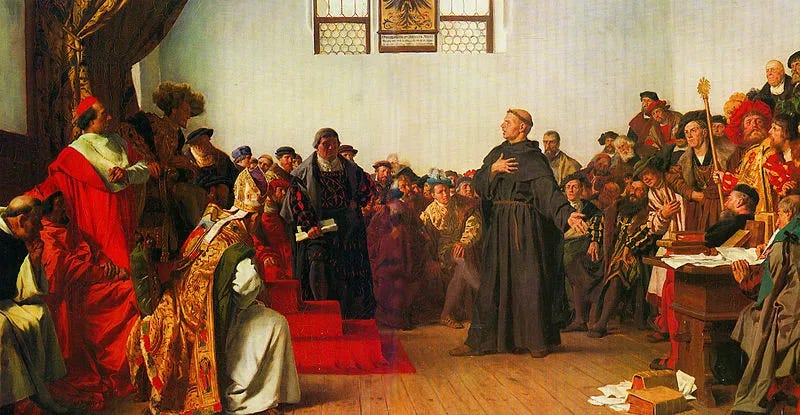
Determinism and Free Will
Recently, primatologist Robert Sapolsky at Stanford argued in the book Determined: A Science of Life Without Free Will (2023) that science left “not a single crack of daylight to shoehorn in free will.” This is an almost Newtonian determinism. It is commonly expressed as that nature, the natural world that is (usually the physical world, with a caveat I’ll get to in a bit) is causally closed. Nothing is caused by anything outside of that natural world. And if there is nothing uncaused in that world, and we are in that world, then our choices are fully caused also.
This isn’t a new debate. Free will and determinism have been debated at least since at least the Stoics in the early centuries of the current era. It was discussed by Augustine in the context of original sin and God’s omnipotence, and a famous debate between Martin Luther and Erasmus of Rotterdam set the tone of the Reformation and the difference between free will and determinism, with Luther and later Calvin taking more or less deterministic stances, with God choosing the results, analogous to natural law causing our choices.
But the modern debate comes more recently out of post-theological concerns, and has resolved down mostly to a choice of the determinist position (no free will) and the compatibilist position (free will and causal determinism are compatible). Compatibilism often requires something like the view that our choices are “underdetermined”: that is, no reasons can force our choices entirely.
My own view is that there is a semantic slide happening. On the one hand, we have a question of causal closure – whether all events are caused. I think this is true. My brain operates using the laws of physics and chemistry and whatever rules there are in biology, psychology and history. On the other we have a moral question: are we acting freely when we act or are we coerced? A free act is one that is not (unduly) coerced. Between these two aspects or questions is a wide gap. My coercion or the lack of it can be caused. It is a matter of the independence of agency, as noted. Agents can be guided, duly or unduly, and no agent is an island, entire of itself. Or, in modern terms, we have an environment to which we must respond and individually adapt to, but that is separate from the question of whether we are caused to behave in the ways we do. Of course we are: otherwise we would have no "nature" as it used to be called.
All concepts are a matter of definition. The history of the concept “free”, from classical philosophy through Luther and Erasmus’ debate, through to modern philosophy, trades entirely on the equivocation between free and uncaused. As Luther might say, Hier stehe ich, ich kann nicht anders…1 We act “according to our natures”, yes, but we act without coercion if we are free. If, for example, there is a quantum aspect to cognition as Penrose thinks (I do not; it’s too micro for such a macro system), then that is causal too. If you like, we can tag the senses: Freephysical and Freemoral. But even physical systems have degrees of freedom (which we call contingency); the physical sense just means achievable states. The moral sense means responsibility to choose. If choice is a physical process (and I cannot but think it is - I’m forced to, you know?), then the only difference between free and forced is whether or not the choice was made by the agent plus environment alone, or whether there were other agencies forcing the choice in a different direction. We can be Freemoral but not Freephysical – or at least there is no formal contradiction.
This is not compatibilism as such, because there is no need. Consider a graph with causation on one axis and responsibility on another. The actual state of affairs may be anywhere in that field of possibilities. As a monist, I hold that causation is fixed, but responsibility may not be. Indeed, in giving a verdict in law courts that someone was not responsible, by way of mental impairment, say, one effectively asserts that in this person’s case, they had no responsibility due to certain causal factors. In other cases, they do bear responsibility. The latter case is that someone is [caused to be] a responsible agent, while in the former case, they are not.
In order for causal determinism to overcome the moral notion of responsibility and the social notion of free choice, it has to be the case that causal indeterminacy is needed for moral freedoms. So far as I can see, this is not the case. Moral determinism and causal determinism share only the noun, and not the adjectives. The terms range over distinct domains. There may be a case for this identity, but I haven’t seen one. As usual, the philosophical issues are caused by a conflation of words and the world.
Here I stand, I can [do] no other”. This is apocryphally what he is supposed to say when he was called to account for his deviation from Catholic doctrine in 1541, at a forum before the Holy Roman Emperor Charles V (called a Diet in Latin) in the city of Worms. This has led to much snickering by undergraduates.




Wow, nicely done, sir! Also entertaining!